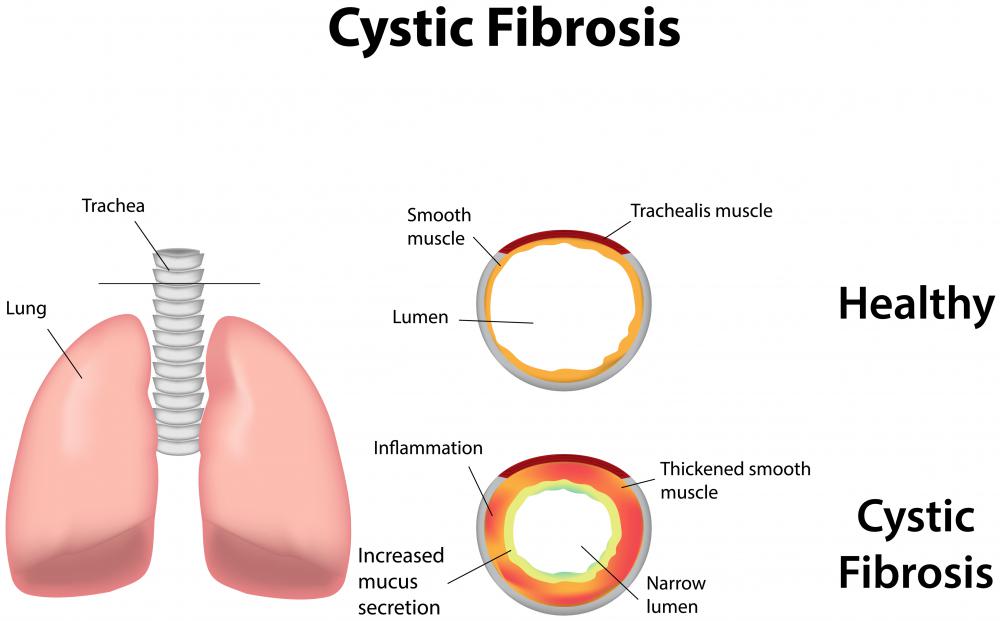At TheHealthBoard, we're committed to delivering accurate, trustworthy information. Our expert-authored content is rigorously fact-checked and sourced from credible authorities. Discover how we uphold the highest standards in providing you with reliable knowledge.
What is Tissue Fibrosis?
Tissue fibrosis is a condition in which fibrous connective tissue invades an organ. Scar tissue is formed as a repairing process, and the tissue hardens, reducing the flow of fluid. The condition is usually caused by injury, inflammation, and burns. More uncommon causes include radiation, chemotherapy, and improper treatment of lymphedema. Effects of tissue fibrosis and treatment depend on its location: the liver, secretory glands, and lungs are among the more commonly affected areas.
Liver fibrosis is the accumulation of excess scar tissue in the liver. Over time, this disrupts the metabolic functions of the liver and could lead to cirrhosis, the final phase of chronic liver disease. Heavy alcohol consumption, steatosis, and the use of immunosuppressive drugs all contribute to the development of the condition.

Insulin resistance and HIV are known to accelerate the process of tissue fibrosis in the liver. Treatment options include antibiotics, coagulopathy for vitamin K and other blood products, and encephalopathy. Patients are also advised to completely cease alcohol consumption and limit their salt intake. Patients in the advanced stages of cirrhosis are often candidates for liver transplantation.

Cystic fibrosis (CF) is a genetic disease of the secretory glands in which body fluids such as mucus and sweat are stickier and thicker than normal. A single, faulty gene found in chromosome 7—the chromosome that controls water and salt movement in and out of cells—is the hereditary cause of CF. Tissue fibrosis of this sort typically affects the intestines, pancreas, or liver. The lungs, sinuses, and sex organs might also be affected.

Although no cure has been developed for CF, several viable treatments, such as chest physical therapy (CPT) and oxygen therapy, can make the condition significantly more manageable. Intravenous, oral, and inhaled medication have also been found to relieve symptoms of tissue fibrosis. Patients with advanced lung disease can opt for lung transplantation, although the procedure carries many risks.

In pulmonary fibrosis, excess fibrous connective tissue develops in the lungs. The condition is often referred to as “scarring of the lungs” and might be a secondary effect of other interstitial lung diseases. In some cases, it could be idiopathic pulmonary fibrosis (IDP) or cyptogenic fibrosing alveolitis (CFA), diseases in which the cause is unknown. Symptoms include dyspnea (shortness of breath), dry cough, and significantly decreased capacity to exercise. Since scarring is permanent once developed, there is no evidence that tissue fibrosis in the lungs can be treated with medication, although it may help prevent further damage and ease symptoms.
AS FEATURED ON:
AS FEATURED ON:















Discuss this Article
Post your comments